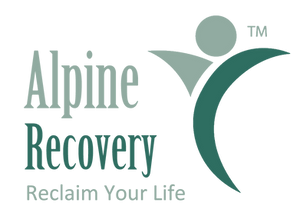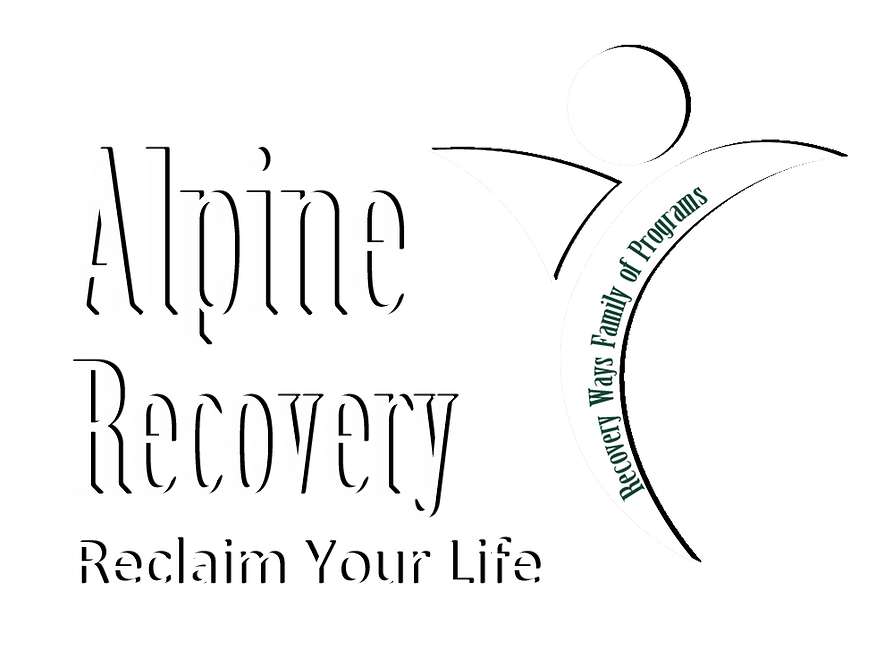Evidence-Based Approaches in Addiction Treatment
At Alpine Recovery, we emphasize the importance of evidence-based practices in treating addiction. Our approach integrates scientifically validated therapies to ensure effective treatment outcomes. Clients experience therapies like Cognitive Behavioral Therapy (CBT) and Dialectical Behavior Therapy (DBT), which are internationally recognized for their effectiveness in treating substance use disorders.
Utilizing evidence-based methods allows us to tailor treatments that address the unique needs of each individual. This client-centric approach not only improves the success rate of overcoming addiction but also equips clients with techniques to manage triggers and prevent relapse.
Our commitment to evidence-based care means our clients benefit from the latest research and best practices in mental health and addiction treatment. This adaptability and commitment to ongoing learning enable Alpine Recovery to provide high-quality and effective care.
Holistic Treatments for Well-Being
Alpine Recovery believes in the transformative power of holistic treatments as part of a comprehensive recovery plan. By addressing the physical, emotional, and spiritual aspects of addiction, we foster long-term wellness. Our clients engage in mindfulness practices, which aid in reducing stress and enhancing emotional resilience. Mindfulness and meditation have been shown to improve self-awareness, a key component of successful recovery.
Incorporating physical health into recovery is also pivotal. Exercise programs designed by fitness professionals help clients reconnect with their bodies, boosting both mental and physical health. Nutritional guidance is an integral part of our treatment plans, as a balanced diet supports brain function and overall health, aiding recovery.
The holistic approach at Alpine Recovery ensures that clients leave with a well-rounded skill set for maintaining sobriety and a healthier lifestyle. These programs not only contribute to recovery but enhance the quality of life, offering clients tools that remain useful beyond their time at our facility.
Personalized Care and Treatment Plans
Each individual’s journey is unique, and at Alpine Recovery, we honor this by offering personalized care. Our licensed therapists and counselors work collaboratively with clients to develop tailored treatment plans that align with their specific needs and recovery goals. This personalized approach ensures treatment effectiveness, as clients are more likely to engage with and benefit from plans that reflect their personal circumstances.
During the initial assessment, our team evaluates each client’s substance use history, mental health status, and personal circumstances. This comprehensive evaluation allows us to design a treatment path that considers all aspects of the individual’s life, increasing the likelihood of successful recovery.
The Role of Community and Peer Support
At Alpine Recovery, we recognize the profound impact of community and peer support in the recovery process. We foster a nurturing environment where clients can connect with others who have experienced similar struggles. This connection creates a sense of belonging and shared understanding, which is vital for emotional healing and empowerment.
Clients participate in group therapy sessions that encourage open communication and mutual support. These sessions are integral to recovery, offering an opportunity for clients to learn from each other’s experiences and insights.
Our community-focused approach ensures clients never feel isolated in their journey, promoting a network of support that extends beyond their time at Alpine Recovery. Building strong relationships with peers provides ongoing motivation and reassurance, significantly enhancing long-term recovery success.
Comprehensive Inpatient and Outpatient Programs
Alpine Recovery offers comprehensive inpatient and outpatient programs designed to meet the diverse needs of individuals struggling with drug and alcohol dependence. Inpatient programs provide a highly structured environment where clients can focus entirely on recovery, free from outside distractions.
Our outpatient programs are ideal for those who require flexibility, allowing clients to maintain commitments such as work or family while receiving treatment. These programs offer the same level of care as our inpatient options, with the added benefit of allowing clients to practice recovery skills in their everyday lives.
Both programs include detoxification, therapy, and aftercare planning, ensuring clients receive a complete continuum of care. Our personalized approach means clients receive the right level of support at every stage of their recovery journey, whether they start with inpatient care or transition to outpatient support.
Family Involvement in Recovery
At Alpine Recovery, we understand that addiction affects the entire family. Our family programs provide a safe space for loved ones to express their feelings and learn about addiction. Family counseling sessions are integral to healing, helping repair relationships and rebuild trust.
Education is key, and we offer workshops on addiction and recovery, equipping family members with the knowledge to support their loved one’s journey. These sessions cover effective communication and healthy boundaries, vital components of a successful recovery environment.
By involving family in the recovery process, we ensure clients have a solid support system when they return home. This involvement enhances the treatment process and supports sustained sobriety, helping families grow stronger together.
Overcoming Barriers to Access Care
Alpine Recovery’s drug rehab center in Everett WA is committed to making treatment accessible to all who need it. We offer free, same-day assessments to help clients begin their journey without unnecessary delays. Our facility accepts most insurance plans and provides financial counseling to assist with payment arrangements.
We understand the stigma surrounding addiction can be a barrier to seeking treatment. Our compassionate and understanding staff are dedicated to creating a welcoming atmosphere where clients feel comfortable asking for help. By prioritizing accessibility and breaking down barriers, we ensure more individuals can access the care they need to achieve recovery.
Our location in a serene setting further enhances the healing environment, providing a tranquil space away from the stresses and triggers of everyday life. This helps clients focus on their recovery journey in peace and privacy.
Aftercare and Long-Term Recovery Plans
At Alpine Recovery, we believe recovery continues long after leaving our facility. Our aftercare planning involves creating personalized, long-term recovery plans that address potential triggers and relapse prevention strategies.
We offer ongoing support through continued counseling, case management, and connections to peer support groups. This ensures clients have access to resources and community support as they transition back into everyday life.
The structured aftercare plans we offer provide a safety net for clients, supporting their recovery journey and helping them achieve lasting sobriety. These plans are vital for maintaining the progress made during treatment and for fostering a sustainable and healthy lifestyle.
How many days do you get in rehab?
The length of rehabilitation at a facility like Alpine Recovery can vary greatly depending on individual needs and the severity of the addiction. Typically, programs can range from 28 days to 90 days, but some might extend further if necessary. The initial assessment at Alpine Recovery helps to determine the best course of action, ensuring each client receives the time and care they need to rebuild their lives. Think of it like preparing for a marathon; adequate training and support can significantly impact your success rate in achieving long-term sobriety. Depending on your progress, your plan might adapt along the way.
Do all rehabs cost money?
Most rehabilitation centers, including Alpine Recovery, do require payment for their services to cover the costs of therapy, facilities, and professional staff. However, many centers accept insurance plans, and Alpine Recovery also offers financial counseling to help manage payment arrangements. Some centers might receive funding to provide free or subsidized services, so it’s essential to explore all options. Consider checking with local nonprofits or government programs that may offer financial assistance. Ultimately, investing in your health through treatment can be seen as a significant step towards a healthier, more fulfilling future.
What is the recovery rate of rehab?
Recovery rates can differ based on various factors, including the type of treatment and the individual’s circumstances. Alpine Recovery uses evidence-based approaches known for their effectiveness, although it’s essential to understand that recovery is a continuous process. Studies suggest that 40 to 60 percent of people recovering from substance use disorders can experience relapse, similar to other chronic conditions like diabetes or hypertension. However, the structured support and personalized care at Alpine Recovery aim to equip clients with the tools to manage triggers and maintain long-term sobriety. This holistic and comprehensive approach significantly enhances the probability of success.
How does rehab for drug addicts work?
Rehabilitation centers like Alpine Recovery provide a structured environment where individuals can focus on their recovery without distractions. The process typically begins with an assessment to understand the client’s substance use history and personal circumstances. From there, a personalized treatment plan is crafted, which may include detoxification, individual and group therapy, and holistic treatments like mindfulness and exercise. The concept is akin to rebuilding a house–laying a strong foundation through detox, constructing the walls with therapy, and adding final touches through holistic practices. Clients also benefit from aftercare planning and community support, crucial for sustaining recovery post-treatment.
What are the benefits of holistic treatments in drug rehab?
Holistic treatments at centers such as Alpine Recovery address the physical, emotional, and spiritual aspects of addiction, promoting overall well-being. Engaging in practices like mindfulness and meditation can reduce stress and enhance emotional resilience, fostering self-awareness–a critical component of recovery. Let’s imagine it as learning to play an instrument; it requires practice and patience but ultimately leads to harmony and fulfillment. Additionally, incorporating exercise and nutrition into treatment helps clients reconnect with their bodies and supports brain function, aiding in recovery. Holistic treatments provide clients with a comprehensive skill set to maintain sobriety and improve their quality of life.
How does community support enhance recovery at drug rehab centers?
Community support at Alpine Recovery plays a vital role in the recovery process by creating an environment of understanding and shared experiences. Clients participate in group therapy sessions, which facilitate open communication and mutual support. This is somewhat similar to a team sport, where each member encourages the other, contributing to the overall strength and resilience of the group. These connections foster a sense of belonging, reducing feelings of isolation and significantly boosting the chances of long-term recovery. Building strong relationships with peers can extend support beyond the facility, offering ongoing motivation and reassurance.
What role does family involvement play in the recovery process?
Family involvement is crucial in the recovery journey, as addiction can affect relationships and dynamics within the household. At Alpine Recovery, family programs provide a platform for loved ones to express their feelings and learn about addiction, helping bridge gaps in understanding. Imagine it as a collaborative effort to repair a broken bridge; education and open communication are the tools needed to reconstruct trust and support. By equipping family members with knowledge and effective communication skills, they can create a nurturing and supportive environment, essential for sustained sobriety. Involving families in recovery helps build a solid support system that endures beyond treatment.
Resources
- Substance Abuse and Mental Health Services Administration – The Substance Abuse and Mental Health Services Administration (SAMHSA) is a government organization dedicated to advancing behavioral health. They provide resources, programs, and information on addiction treatment and mental health services.
- National Alliance on Mental Illness – The National Alliance on Mental Illness (NAMI) is a non-profit organization that offers support, education, and advocacy for individuals and families affected by mental illness. They provide resources on addiction, mental health, and well-being.
- National Institutes of Health – The National Institutes of Health (NIH) is a leading medical research agency that conducts studies on addiction, mental health, and treatments. They offer valuable information and resources on evidence-based approaches to addiction treatment.
- Centers for Disease Control and Prevention – The Centers for Disease Control and Prevention (CDC) is a national public health institute that provides data, research, and resources on substance abuse, addiction, and health-related topics. They offer information on holistic approaches to well-being and recovery.
- National Institute on Drug Abuse – The National Institute on Drug Abuse (NIDA) is a government agency focused on advancing addiction science and research. They offer resources, publications, and information on personalized care, treatment plans, and recovery strategies.


